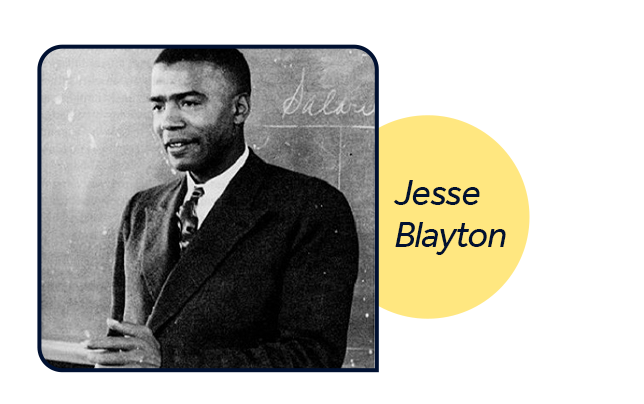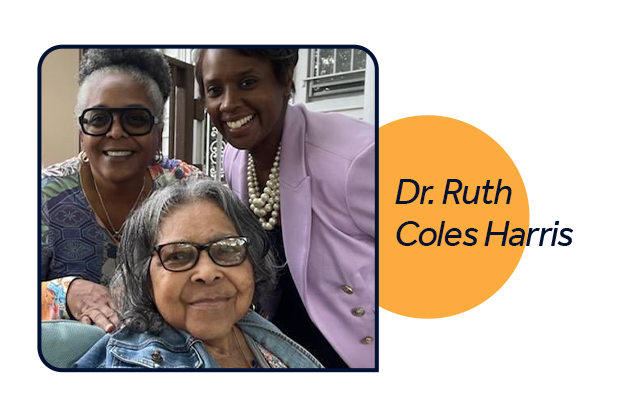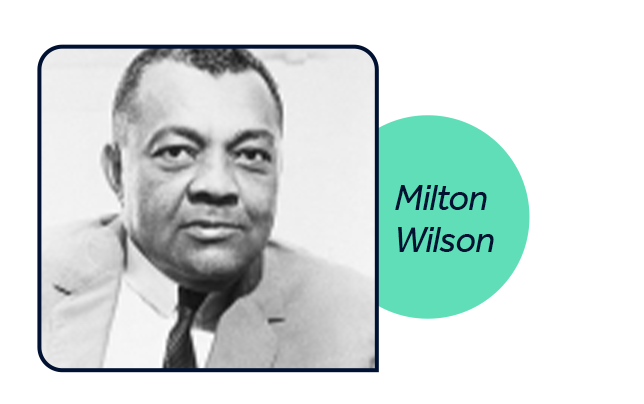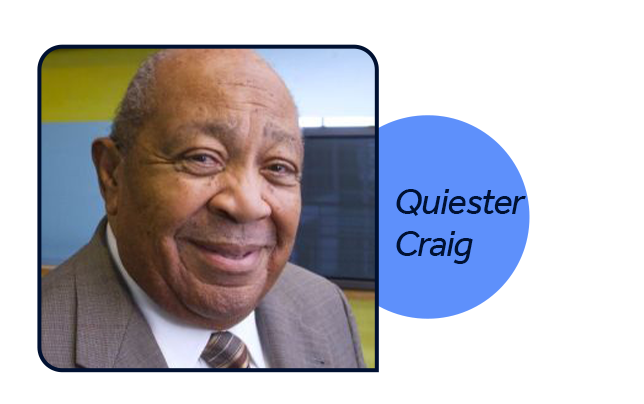Accounting Milestones: The Importance of HBCUs
All around the country, students are graduating from college and embarking on their career journey. Congratulations, Class of 2024! With this new wave of students starting their careers, I wanted to highlight the importance of diversity and inclusion in the accounting profession and the unique role that Historically Black Colleges and Universities (HBCUs) play.
Hello, I’m Kecia Williams Smith, an Associate Professor at North Carolina Agricultural and Technical State University where I lead the Master of Accountancy (MACC) Program and the Center for Accounting Diversity. As a former audit practitioner and regulator, I implement my experiences into innovative academic programming and research related to audit and regulatory communication, auditor judgment and decision-making, audit regulation, and accounting diversity. I strive to spread awareness, elevate the African American presence within the accounting profession, and advocate on behalf of fellow HBCU faculty and students in the workforce.
As we celebrate new graduates, it is crucial to understand the impact Historically Black Colleges and Universities (HBCUs) have had on the profession. I would not be where I am today without the tireless efforts of the pioneers who paved the way and broke down the barriers. It is my pleasure to spotlight historical trailblazers who played a role in adopting accounting programs across HBCUs.
Jesse Blayton: A Pioneer in Accounting Education

As Georgia’s first black Certified Public Accountant (CPA), Jesse B. Blayton was a trailblazer. A graduate of Langston University and a veteran of World War I, Blayton passed Georgia’s accounting examination in 1928 and became the fourth African-American to become a CPA.
Blayton also recognized the importance of representation and sought to recruit black students and professionals to enter accounting. In 1944, he authored the book “Essentials of Accounting” and continued to promote the profession. Through his leadership, he became known as the “Dean of Negro Accountants.”
Aside from accounting, Blayton also invested in the community. In 1928, Blayton and two partners reorganized the Citizens Trust Bank, the first Black bank to join the Federal Reserve. Blayton acknowledged that he wanted his banks to be the source of funding for aspiring Black professionals.
In 1949, Blayton purchased a radio station in Atlanta. The 1,000-watt radio station WERD became the first Black-owned station. WERD’s programming included public service announcements, educational pieces, church services, jazz and gospel music, community news, and more. Blayton used his radio station to elevate the civil rights movement by serving as an information outlet for the campaign and prominent civil rights leaders, such as Martin Luther King, Jr. For his pioneering work, Blayton was inducted into the Radio Hall of Fame in 1955.
In 1949, Blayton purchased a radio station in Atlanta. The 1,000-watt radio station WERD became the first Black-owned station.
Dr. Ruth Coles Harris: A Pioneer for Black CPAs

Dr. Ruth Coles Harris blazed a path of opportunities for many future accounting students. In 1962, she because the first Black woman CPA in Virgina. Fewer than 100 African-Americas held CPA licenses at the time in the United State and only one other was licensed in the state of Virginia.
Obtaining her license was no easy feat and she overcame many barriers to obtain it. At the time she sat for the CPA, the testing location in Virginia Beach did not have any hotels that allowed African Americans and so she had to stay out of town every day after testing. However, she persevered and succeeded in obtaining her CPA.
Her love for accounting is also what brought her into education. In Virgina, there were no firms hiring African-American accountants at the time. However, Virginia Union University reached out about an opportunity as an Accounting professor. She then went on to serve as the founding Dean of the Sydney Lewis School of Business at Virginia Union University, helping to grow the program.
Her contributions to the accounting profession paved the way for many students who aspire to study and excel in the field of accounting today. I had the pleasure of meeting up with Dr. Ruth Coles Harris recently and at 95 years young, her quick wit and great intellectual capacity were in full display.
Dr. Ruth Coles Harris then went on to serve as the founding Dean of the Sydney Lewis School of Business at Virginia Union University, helping to grow the program.
Milton Wilson: A Barrier-Breaking Dean

Hailing from a family of public school teachers, Dr. Milton Wilson set out to continue a legacy of education. Dr. Wilson earned two doctorate degrees, one in accounting, from Indiana University at Bloomington.
After completing his education, Dr. Wilson became the head of the accounting department at Hampton Institute and subsequently at Dillard University. In 1949, Dr. Wilson established and led the Department of Business at the Texas Southern University (TSU) in Houston, which would eventually become the School of Business. In 1952, Dr. Milton Wilson received his accounting license and made history as Texas’ first black CPA.
Dr. Wilson continued to teach at TSU until 1970 when he returned to his alma mater. However, in 1971, Dr. Wilson accepted the invitation from Howard University to establish a new school of business. When it was first established, the school had eight or nine faculty members and approximately 200 students. But under Dr. Wilson’s leadership, Howard University’s new business school grew to roughly 80 full-time faculty members and nearly 1,800 students. Under Dr. Wilson was crucial to Howard becoming the first business school in the Washington, DC area to be accredited by the AACSB.
His effort laid the groundwork for future generations of students pursuing an accounting career at an HBCU.
Under Dr. Wilson’s leadership, Howard University’s new business school grew to roughly 80 full-time faculty members and nearly 1,800 students.
Quiester Craig: A Supporter of Students

Lastly, I’m honored to spotlight my alma mater and current workplace, theWillie A. Deese College of Business and Economics at North Carolina A&T State University. The last pioneer on my list is Dean Emeritus Quiester Craig, who served as Dean of the College of Business and Economics for 42 years. Until his retirement in 2013, Dean Craig’s leadership impacted the lives of thousands of students.
Dean Craig’s journey with NC A&T started in 1972 when he was appointed professor of accounting and dean of the School of Business and Economics. Before his tenure, Dean Craig had already broken barriers as one of the first African Americans to earn CPA licensure. However, the records kept coming under his leadership. During his time, the school’s undergraduate programs were accredited by the AACSB, and NC A&T became the third HBCU to receive international accreditation from AACSB and the first to receive separate accreditation for the accounting program in 1986.
Accreditations aside, Dean Craig also understood the importance of financial support. During his leadership, many students were able to pursue their accounting interests thanks to scholarships from donors and the communities. Dean Craig recognized that many students only needed the opportunity to show their talent, grit, and determination to succeed. To this day, his endowed scholarships continue to provide higher education access for many students. Dean Craig will be recognized with the American Accounting Association (AAA) Lifetime Achievement Award in August 2024 at the AAA Annual Meeting.
I grew up in an era where the opportunities available were a fantasy – they didn’t exist. Now we have transitioned to a time where preparation can be the foundation to get something started.
While accounting programs have grown at HBCUs, more must be done to ensure they receive the same financial support as programs at non-HBCUs. In recent years, many leading accounting firms have pledged financial support for Diversity, Equity, and Inclusion (DEI) efforts to better reflect the population the accounting profession serves. However, in research for the American Accounting Association, my colleagues and I noticed a discrepancy between charitable giving from accounting firms to HBCUs and non-HBCUs. While charitable giving to HBCUs has increased in recent years, the total allocation percentage to HBCUs remains relatively stagnant. Even within HBCU funding, smaller HBCUs do not receive the same amount of support as well-known HBCUs. For our profession to truly reflect the population it serves, I encourage leaders at accounting firms to pursue equal access and equitable financial support when making an impact via charitable giving.
While there is still work to be done as our profession continues to cultivate a more diverse workforce, I am proud of these educators who have helped pave the way with their perseverance, dedication, and passion. As we look for ways to increase diversity in the profession, I encourage you to check out the CAQ’s Bold Ambition and for students interested in pursuing a career in accounting, visit Accounting+.

